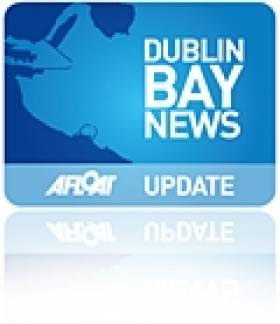Displaying items by tag: Eastern
500 Boats will Kick Start the Dublin Sailing Season this Weekend
There could be anything up to 500-boats afloat for events right across the bay and out in to the Irish Sea.
Joining the 390 boat DBSC fleet for its 128th season is a gathering of over 300 dinghies in Dun Laoghaire for the Mitsubishi Youth National Championships at the Royal St. George and National Yacht Clubs. It's an important event because it is a dry run for next year's ISAF Youth Worlds on Dublin Bay.
The National Yacht Club is also host for the first race of the 2011 ISORA offshore season. Up to 17 starters from a possible ISORA entry list of 40 are confirmed for the first race to Holyhead. First gun for ISORA is at 0755. An Early one!
Across the bay in Howth there is a competitive fleet assembled for the SB3 Eastern Championships. A notable feature of the event is the inclusion of Olympic campaigner Annalise Murphy.
Ashore, Réalt na Mara Dun Laoghaire RNLI's new D-class lifeboat is to be officially named during a ceremony on the East Pier in Dun Laoghaire this Saturday at 12 noon. The lifeboat is to be named by Mr and Mrs Pat and Kathy Kenny. RTE presenter Pat Kenny and his wife Kathy have been long-standing supporters of the Dun Laoghaire RNLI lifeboats.
Mid week forecasts show good sailing winds for the weekend. Met Eireann is forecasting Southeast to east force 2 to 4 breezes, light enough for a gentle start to the season but there's still a chance of stronger for Saturday afternoon. Listen to Eddie English's weather prediction from Cork Harbour.






























































